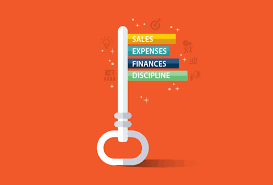Hello!
 Many people run a small business without knowing what makes a successful or profitable business. There are many techniques that successful businesses use to grow and generate revenue, which is why it is beneficial for entrepreneurs to learn these strategies for themselves.
Many people run a small business without knowing what makes a successful or profitable business. There are many techniques that successful businesses use to grow and generate revenue, which is why it is beneficial for entrepreneurs to learn these strategies for themselves.
The following write-up has compiled some of the best strategies one can use if they are running a profit-driven company. The full article will go over the ideas in detail and provide effective pricing practices you can implement into their company’s operations.
How Pricing Strategies Help Running A Profitable Business
There are a plethora of ways to increase your revenue. However, the best way to do this is to know how your company maximizes its profits. Revenue is generated by selling your product or service at the right price. It may seem obvious, but the key to maximizing profits is having an idea of what makes a profit and choosing pricing strategies that benefit this goal.
 It is important to use a software pricing company that will make a business profitable in order for it to become successful. Below you will find the most popular practices for pricing that increase revenue and overall profitability.
It is important to use a software pricing company that will make a business profitable in order for it to become successful. Below you will find the most popular practices for pricing that increase revenue and overall profitability.
Best Practices For Pricing
The marketing and pricing techniques below are the most common practices business owners use. Some of these techniques are simple, and some require additional price structures, but they all aim to improve profits.
Competition-Based Pricing
Competition-based pricing is using the price of your competitor’s product to make your own more appealing while still staying profitable. In this method, you take your competitor’s product and compare it to yours in every way possible, such as quality, quantity, and other relevant factors. In other words, make sure you do your due diligence when researching competitors before considering your own pricing strategy. This method is common for products with little difference between their qualities but an apparent difference in the value it provides when comparing one to another.
Cost-Plus Pricing
 Cost-plus pricing is an approach that sets a price high enough to pay all the expenses for setting up and running the business, including wages for each staff member and other costs. Then the remaining profit is divided among the owners.
Cost-plus pricing is an approach that sets a price high enough to pay all the expenses for setting up and running the business, including wages for each staff member and other costs. Then the remaining profit is divided among the owners.
Dynamic Pricing
Dynamic pricing is the use of changing your price on a regular basis for your product or service. For this strategy, you set prices for different time periods. For example, you may set up a five-day price cycle and offer five discounts over the course of the week. The idea is that there are often various “deals” that can be had over the course of a week because people do not have time to purchase much during certain days, therefore only going to purchase those things they truly need when they know they will have time to purchase them during that time frame.
Hourly Pricing
 Hourly pricing is a relatively new form of pricing strategy. It is in vogue for online commerce because it allows businesses to efficiently enter a market with an uncertain amount of time before customers decide to purchase. Most online stores now use hourly pricing for their products and services, much like stores that have items purchased by the hour and therefore must be selected from an inventory rather than ordered and have no price listed.
Hourly pricing is a relatively new form of pricing strategy. It is in vogue for online commerce because it allows businesses to efficiently enter a market with an uncertain amount of time before customers decide to purchase. Most online stores now use hourly pricing for their products and services, much like stores that have items purchased by the hour and therefore must be selected from an inventory rather than ordered and have no price listed.
Skimming Pricing
Skimming pricing is an older business practice that revolves around knowing the highest price you could charge for your product or service and staying with that price. The idea behind this practice was to look for ways to get as much profit as possible before a competitor’s product hit the market. Essentially, a company would recognize a growing demand and then raise prices accordingly while they still could make more profit.
Penetration Pricing
 Penetration pricing is the opposite of skimming. Instead of raising your price to the highest level you can, penetration pricing has you setting your prices at a low amount to entice consumers to buy your product or service.
Penetration pricing is the opposite of skimming. Instead of raising your price to the highest level you can, penetration pricing has you setting your prices at a low amount to entice consumers to buy your product or service.
Project-Based Pricing
The idea of project-based pricing comes in the form of a quote. For every product or service, there is a starting price that you are willing to accept. A quote with a range of charges allows businesses to be flexible to their customer’s needs while maintaining profitability and quality.
Value-Based Pricing
Value-based pricing is another form of pricing strategy that involves acknowledging the value of a product or service while also considering its cost and likability. This requires the use of statistics to properly price products like software.
Bundle Pricing
 Bundle pricing is a product pricing strategy that involves bundling products and services in packages. For example, a mobile phone company may bundle its service with cell phones in order to save customers money and improve their quality of service while also stimulating their sales. This is a great way to get people to purchase more of your products or services while also making your business look reliable and professional.
Bundle pricing is a product pricing strategy that involves bundling products and services in packages. For example, a mobile phone company may bundle its service with cell phones in order to save customers money and improve their quality of service while also stimulating their sales. This is a great way to get people to purchase more of your products or services while also making your business look reliable and professional.
The Bottom Line
 Pricing is a very important area of your business operation. If you are selling a product, you must make sure that you are pricing it at a level that is both high enough to keep profits and low enough to gather interest from the consumer.
Pricing is a very important area of your business operation. If you are selling a product, you must make sure that you are pricing it at a level that is both high enough to keep profits and low enough to gather interest from the consumer.
There are many different strategies for pricing your products and services and ultimately finding the perfect one for your business or brand will depend on what type of industry you are in and what the needs of the consumers are.
Thank you!
Join us on social networks!
See you!






